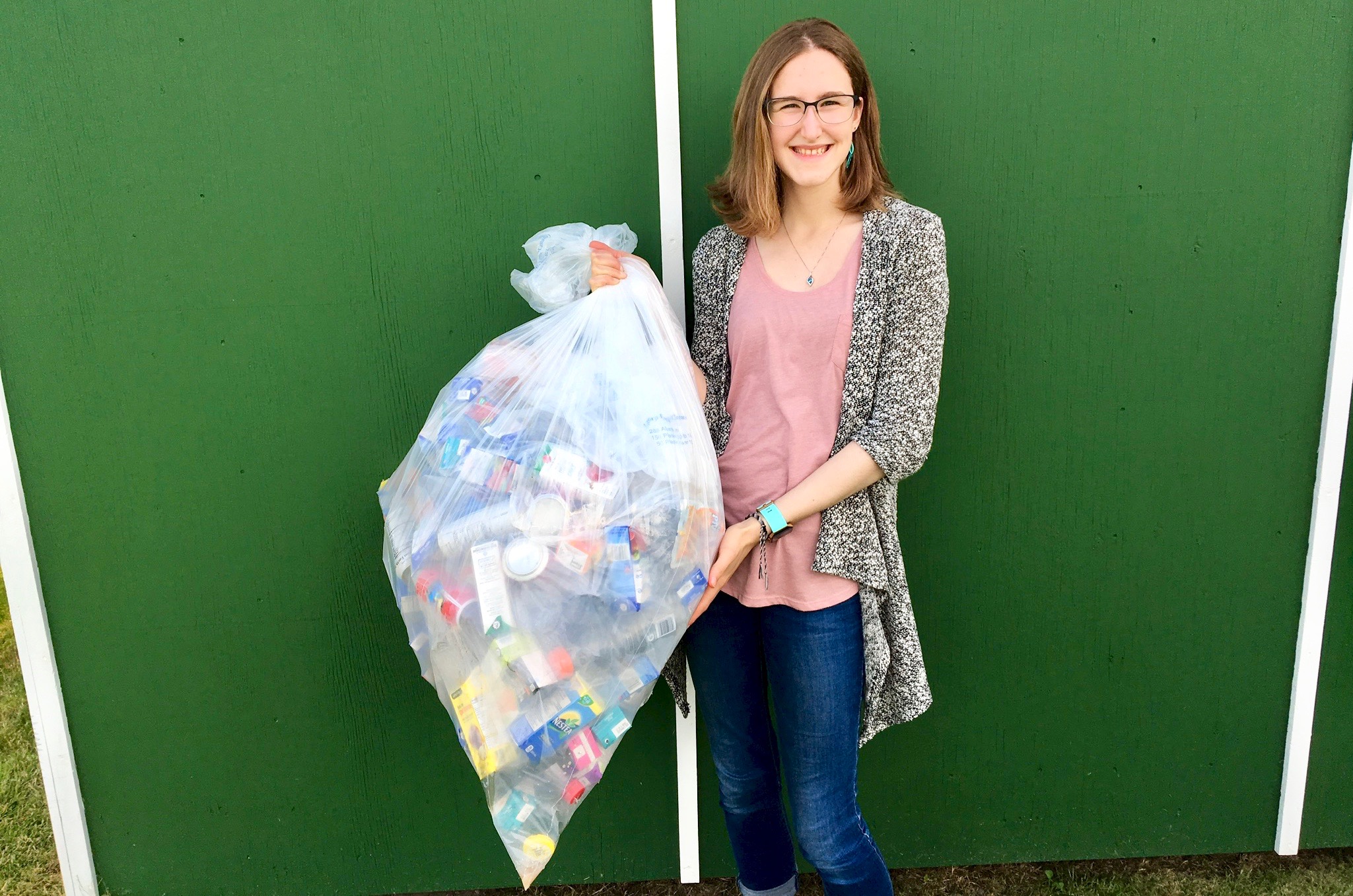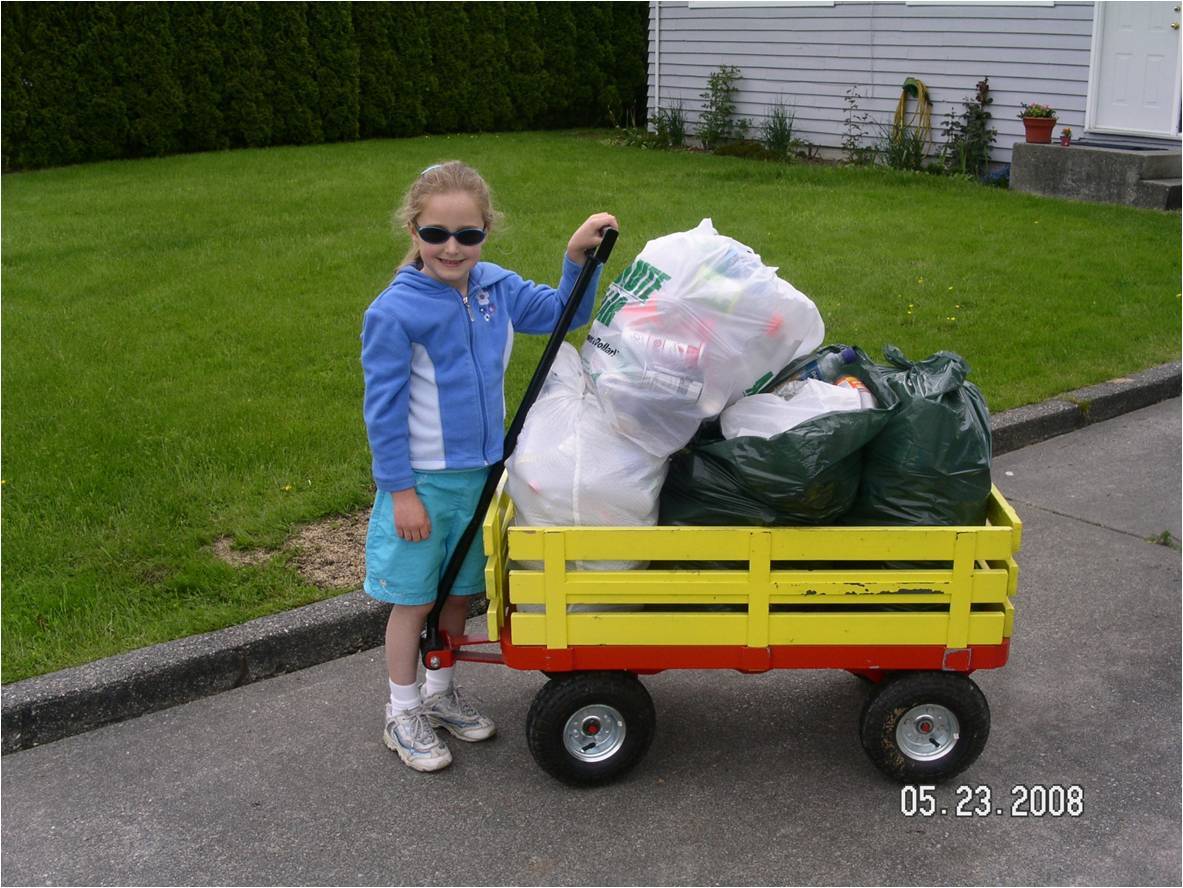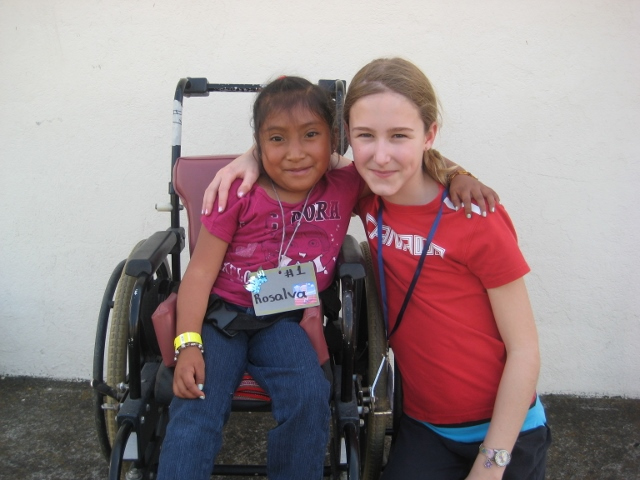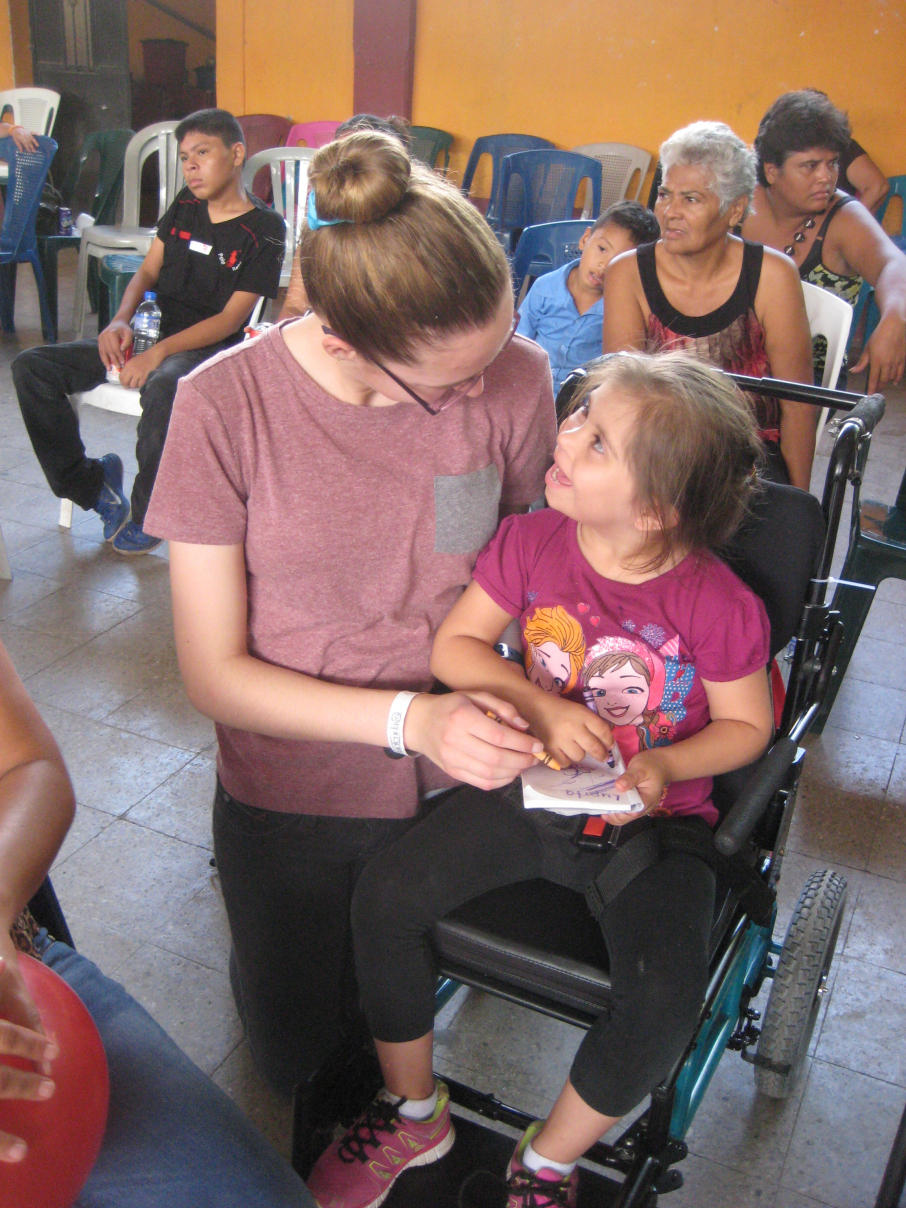The National Youth Council believes in recognizing youth with sight loss. That's why it created the Leadership Award to celebrate people going above and beyond to make a difference in their community.
As Founder and CEO of The Juice Box Project, Veronika Copping has helped keep over a quarter of a million beverage containers out of the waste system while also raising funds to purchase wheelchairs for children who otherwise could not afford them.
For her outstanding accomplishments, Veronika Copping is the recipient of the 2020 National Youth Council Leadership Award!
CNIB National Youth Council member, Emilee Schevers, sat down with Veronika (virtually!) to learn more about her volunteer work.
Emilee: Can you tell us a little bit about yourself?
 Veronika: I’m from Surrey, British Columbia, and although I am eighteen years old, I am not your typical teenager. I enjoy all things leadership and volunteerism, as well as anything that allows me to show my creativity. I am currently attending the University of British Columbia's Okanagan campus, where I am working towards my Bachelor of Arts degree in Philosophy-Political Science-Economics with a minor in Math.
Veronika: I’m from Surrey, British Columbia, and although I am eighteen years old, I am not your typical teenager. I enjoy all things leadership and volunteerism, as well as anything that allows me to show my creativity. I am currently attending the University of British Columbia's Okanagan campus, where I am working towards my Bachelor of Arts degree in Philosophy-Political Science-Economics with a minor in Math.
Emilee: What volunteer activities are you involved in?
Veronika: Community leadership has been a part of my life for as long as I can remember and shaped me to be the trailblazer I am today. To date, I have completed over 2,000 volunteer hours ranging from community engagement, mentorship, leadership, non-profit work, short-term missions, engagement with the elderly, and more. My largest volunteer commitment would be my non-profit, The Juicebox Project. I also serve on the City of Surrey Youth Leadership Council and volunteer with the SPARK Foundation, my church’s Youth LEAD Program, Fleetwood Place Care Facility, and the British Columbia 4-H Program… to name a few.
Emilee: Can you tell me about The Juice Box Project?
Veronika: The Juicebox Project is a non-profit organization that I started when I was six to help sponsor wheelchairs for children in Guatemala. We collect recyclable beverage containers, return them for money, and then use that money to pay for wheelchairs for kids who would otherwise not be able to afford one. To date, we have been able to sponsor over 100 wheelchairs!
 Emilee: Why did you start volunteering?
Emilee: Why did you start volunteering?
Veronika: Honestly, I started volunteering before I even knew what the word “volunteer” meant. My grandfather volunteers for an organization called Hope Haven Canada, which also does work with wheelchairs, and I began helping him as soon as I could walk. Since then, I was just blessed with several opportunities that have come my way that have been really engaging.
Emilee: What is the coolest thing you have done because of your volunteer work?
Veronika: There are so many unique experiences that I’ve had, but my travels to Guatemala definitely stand out! Being able to see first-hand the children who are receiving wheelchairs through The Juicebox Project is truly life-changing and gives me the push I need to continue running The Juicebox Project. Plus, Guatemala is a beautiful county with a lot of history to explore.
Emilee: Tell me about your experience with TedX.
Veronika: I never thought that I would give a TED talk, and it is honestly by fluke that it ended up happening. I was attending and presenting at a school event when a teacher, who I had never met before, mentioned to all the students there that there was going to be a TEDxKids conference happening, and if anyone wanted to apply, she would be willing to help them. The following week, we shot some clips and sent in an application. From there I was short-listed and had to attend an audition before finally being selected as one of the speakers.
 Giving a TEDxKids talk was one of the greatest moments of my life, plus it is something that most people can’t put on their resume! There are so many doors that opened after my talk, such as being sponsored by Barbie (Mattel) for their “Be Super” campaign and speaking at the provincial volunteer association conference. Overall, it is something that I would suggest to anyone who can give a TED talk to not turn it down.
Giving a TEDxKids talk was one of the greatest moments of my life, plus it is something that most people can’t put on their resume! There are so many doors that opened after my talk, such as being sponsored by Barbie (Mattel) for their “Be Super” campaign and speaking at the provincial volunteer association conference. Overall, it is something that I would suggest to anyone who can give a TED talk to not turn it down.
Emilee: If you could give a piece of advice to someone younger or someone who is looking to get into volunteering, what would it be?
Veronika: We need to stop listening to society when they tell us that we are the future. Because we are not the future, we are the present. We are the here and now. There are little things that we can do every day to create a positive movement in our society. And it’s the little things that add up to big changes in the world.
Emilee: What opportunities helped you in being the leader that you are today?
Veronika: I have been blessed with being in the right place at the right time and reaching out to those around me. I have many supportive family members, friends, teachers, and mentors that have helped me get to where I am today. The biggest opportunity would simply be: using my voice to speak up for the injustices in the world and being brave to take the steps needed to solve them.
 Emilee: How has being a community leader benefited you?
Emilee: How has being a community leader benefited you?
Veronika: Each of the organizations I have invested much time with have allowed me to successfully grow into who I am, discover my talents and passions, and most importantly create a way for me to give back to my community and world. I would not be who I am or where I am today without these opportunities. I am appreciative of my community for shaping and moulding me into the person I am proud to be.
Emilee: What are some of the greatest skills or lessons that you have gained from community work?
Veronika: I have conquered many fears over the years and gained skills in doing so. I have learned how to have strong communication skills and interact with business professionals to grow The Juicebox Project. I’ve learned that failure doesn’t mean stopping, but rather just picking up and trying again and that there are people out there who are willing to help and support me in my dreams and aspirations. But more than anything, I’ve grown in compassion for those around me, and especially for those who can’t speak up for themselves.
To learn more about The JuiceBox Project, visit juiceboxproject.ca.